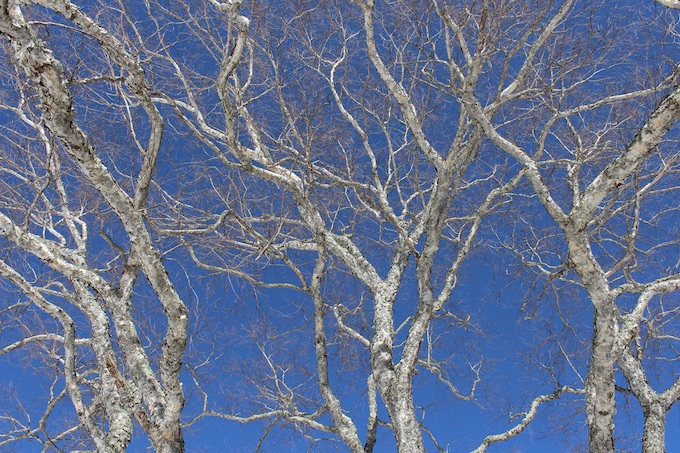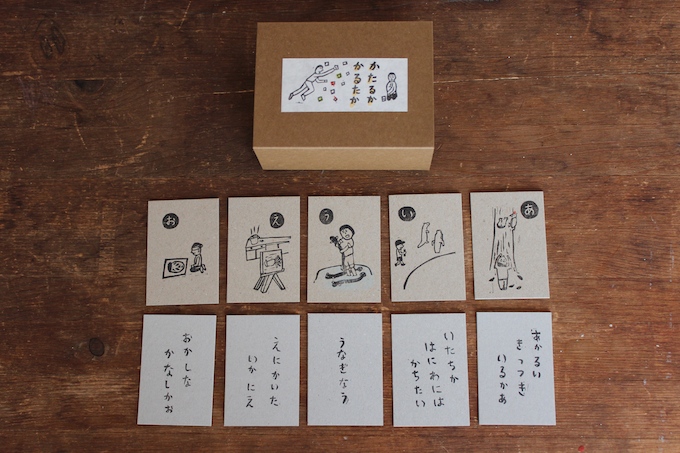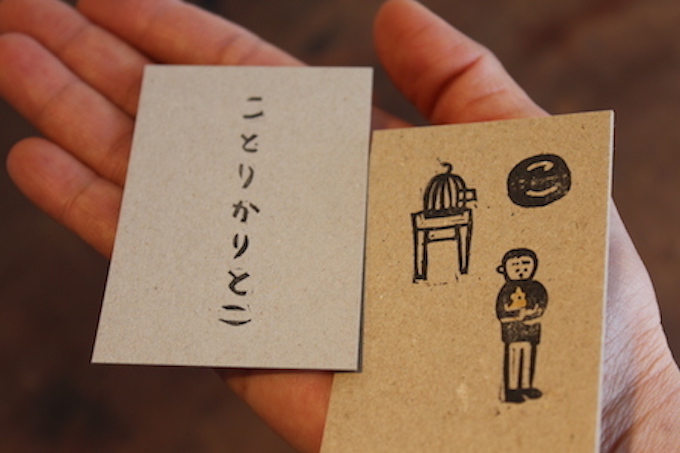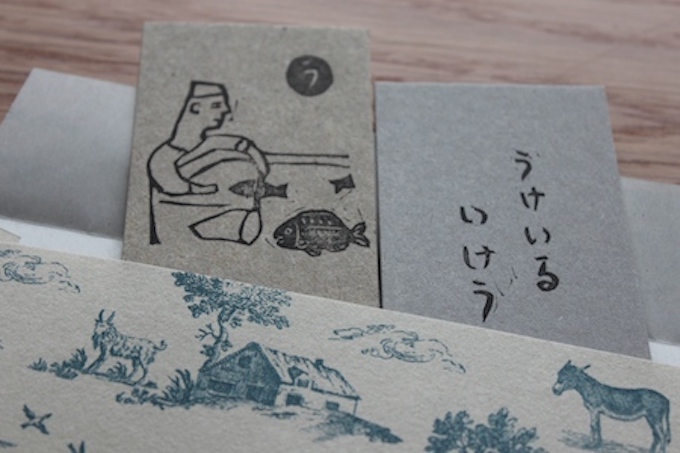“When I was in Ina, it was so cold at night that I couldn’t keep my face out of the comforter. Here, I can put my face out of it.”
My friend Akiko SATO, who came to Hokuto-shi, Yamanashi Prefecture before us and has lived here for six years, said cheerfully.
She told me about the winter in Ina-shi, Nagano Prefecture where she lived for a year and a half before coming here because of her husband’s work.
Even though I feel cold here, her story made me realise that there is even colder place.
When I drive on the icy road fearfully, cars that overtake furiously using a fast lane are sometimes with Nagano license plate as if saying “Hey, don’t get into a funk”, and sometimes when I see cars from Nagano with thick pile snow on top, I feel the difference of winter days.
When I heard the place called Ina, I remembered Shozo KAJIMA who passed away at the end of last year at the age of 92.
He was a poet as well as a scholar of American literature, translator, writer and Bokusai-ga painter (sumi ink artist)
Mr. Kajima, who lived alone in Ina Valley, Komagane-shi, Nagano Prefecture since 1990, deepened the knowledge of Lao-Tze and over time, he came to express the Taoism in the natural life of the valley.
In that context, his poetry book “Motomenai* published in 2007 by Shogakukan, became a great bestseller, and “Ukeireru-Acceptance” published in 2012 by Shogakukan has brought me back tranquillity many times.

I had used to say nonchalantly that “I accept the colours dyed with plants as they are.”
But one day, I thought “Is it true that I really accept the colours?”, “Above all, am I being able to extract the colours of plants properly?”, and a mixture of doubt and shame welled up.
When I was dragging those feelings of uncertainty, I came across with the book “Ukeireru-Acceptance” and my body became much lighter by reading a passage.
“Do not demand but accept it
If we can hold of this feeling
That’s best
But you know, don’t demand for that best
The reality is that we are on the opposite side of it
But let’s accept ourselves being on the opposite side
Then the pendulum will start to swing back”
Mr. Kajima had been writing down words that came to his mind and just the time when he was going to organise those, he faced the death of his best friend who supported him for many years.
Mr. Kajima, who had been running away from sadness and loneliness, had gradually started to accept those.
He mentioned that the word (or ideology) “Acceptance” had become a support for living in his real life.
Certainly…sometimes it may not be so easy.
However, I find myself reflecting upon his words, as well as trying to “accept” as much as possible.

The story goes back to the beginning, and Akiko, who used to live in Ina, likes to play with children and wants to run a shop someday that have a collection of original toys she makes.
This is “Palindrome Karuta**” that Akiko made.
Apparently, ever since the phrase “KO TO RI KA RI TO KO” came to her mind on a new year’s day last year, Akiko, who had always been interested in haiku, came to realise the fascination of palindrome to play with words.
“A KA RU I KI TSU TSU KI I RU KA A”
“I TA CHI KA HA NI WA NI HA KA CHI TA I”
“U NA GI NA U”
“E NI KA I TA I KA, NI E”
“O KA SHI NA KA NA SHI KA O”…
With friends, we came up with total of 45 palindrome phrases and Akiko drew pictures there.
To make the Karuta, Akiko thought about printing those at first, but since she wanted to keep the price low enough to enable children to play casually, while insisting on the texture and thickness of the paper, she made eraser stamps and print it manually one by one.
The hand-made palindrome-karuta which will soon be one year since completed, has already been delivered more than 110 sets to children as well as adults.

Akiko was born and raised in Okayama and met her husband in Tokyo when she was working there, and they spent time in Ina during their newlywed days but she mentioned that there was no doubts in her mind about going to a strange place.
Not only does she support her husband who makes wooden furniture, she attends to housework as well as her own work and raises children. She lives in a mountain in a diligent and humble manner and she seems to be accepting various things placidly although she is much younger than me.
The Karuta that she made with an innocent mind is not sufficiently refined, yet somehow nostalgic.

I made a palindrome phrase too.
“U KE I RU I KE U” (live fish ready to accept)
A fish in a pen that looks somewhat sad as if it is aware of its own destiny.
It came to my mind as a bit of heartbreaking picture. What would come to your mind?
p.s.
I received a letter from Akiko a few days after posting this diary.
And guess what? I found a card of “U KE I RU I KE U” there.
I wanted to draw a fish that is “aware of its own destiny” but it turned out to look rather goofy as if saying “Hey, you can eat me.”
In the letter, Akiko was saying that by making Karuta, it made many people close to her. As one of the fascinated by palindrome Karuta, I am looking forward to seeing Akiko, Karuta and many people being connected in future.

